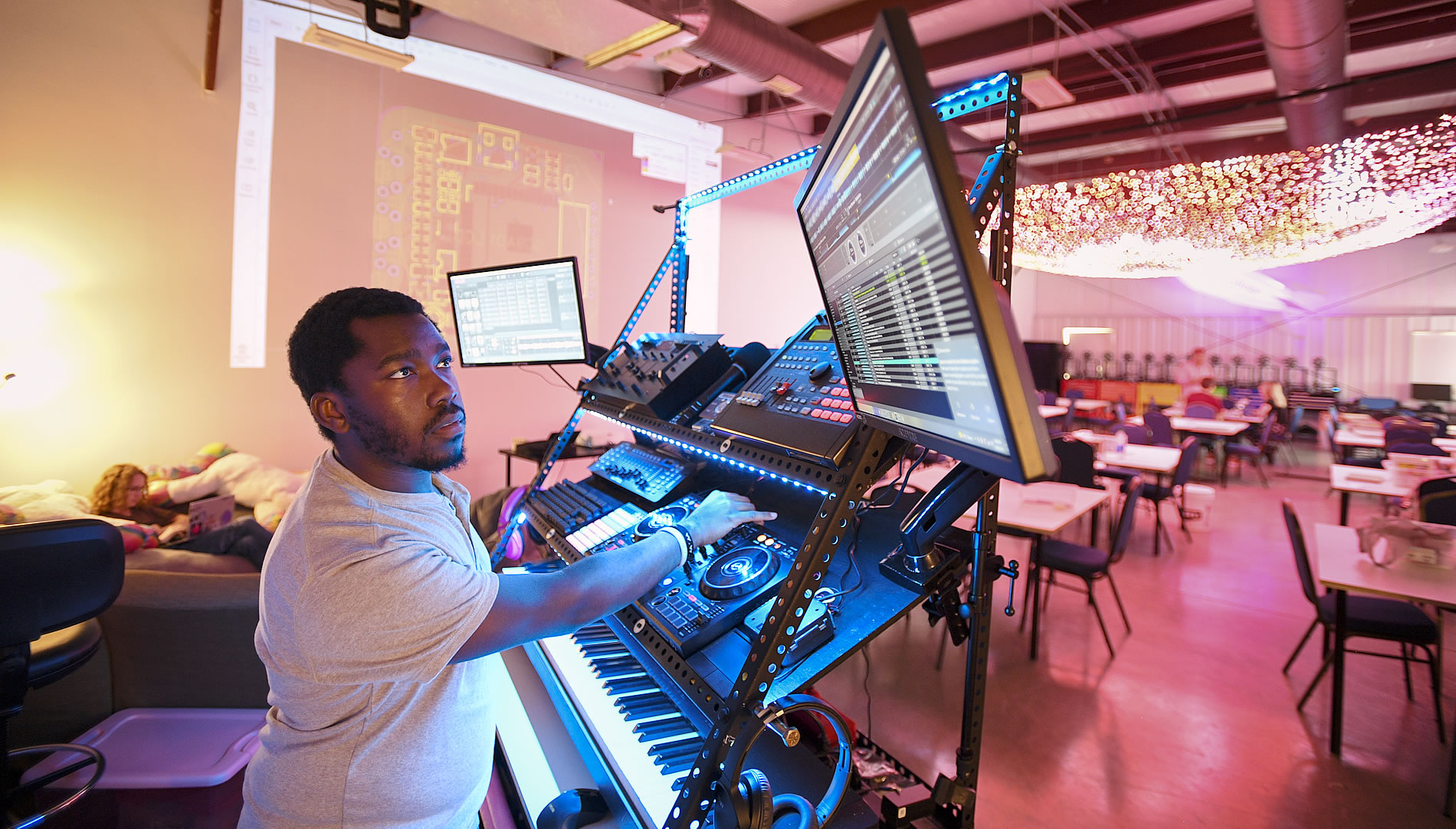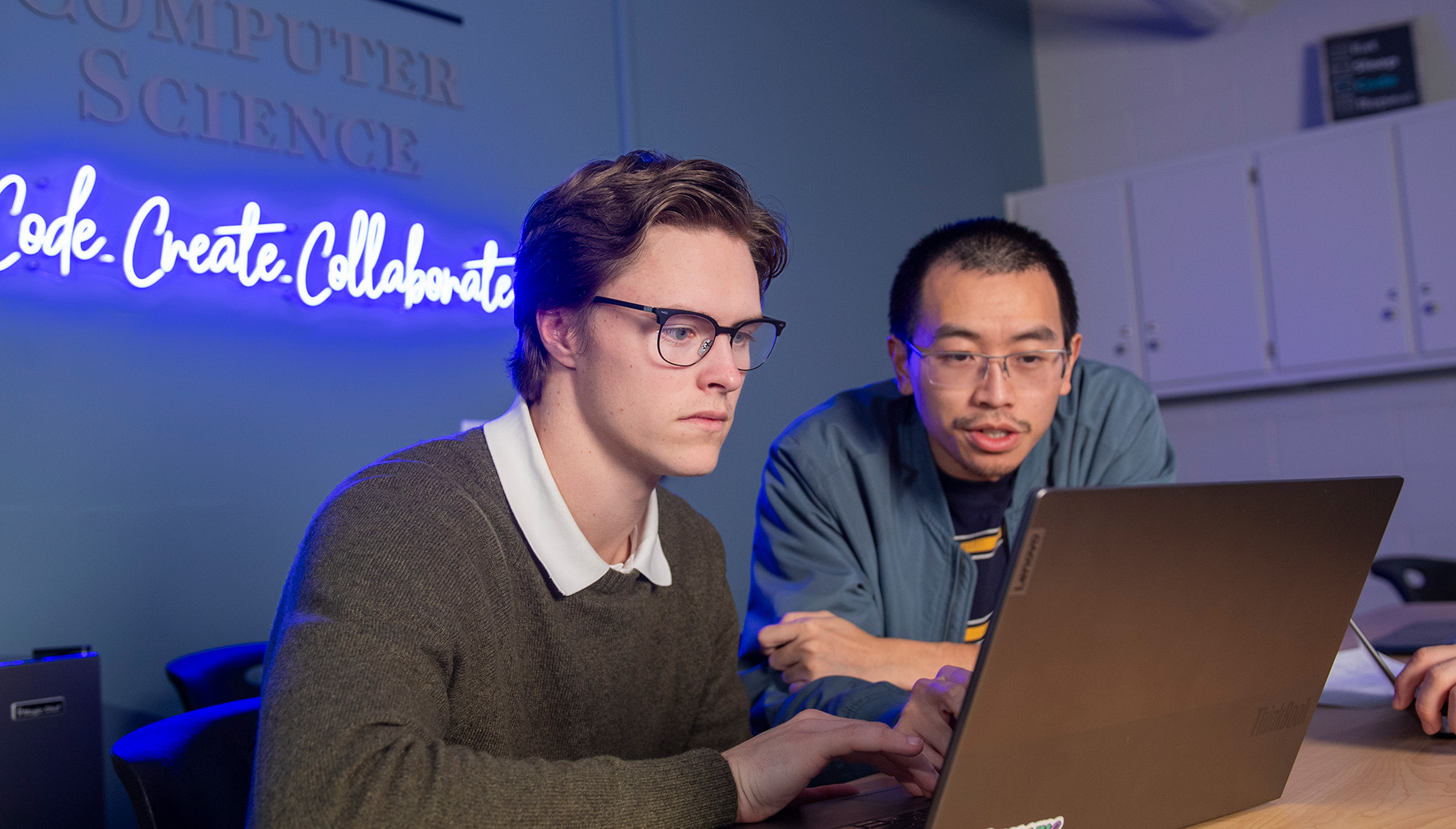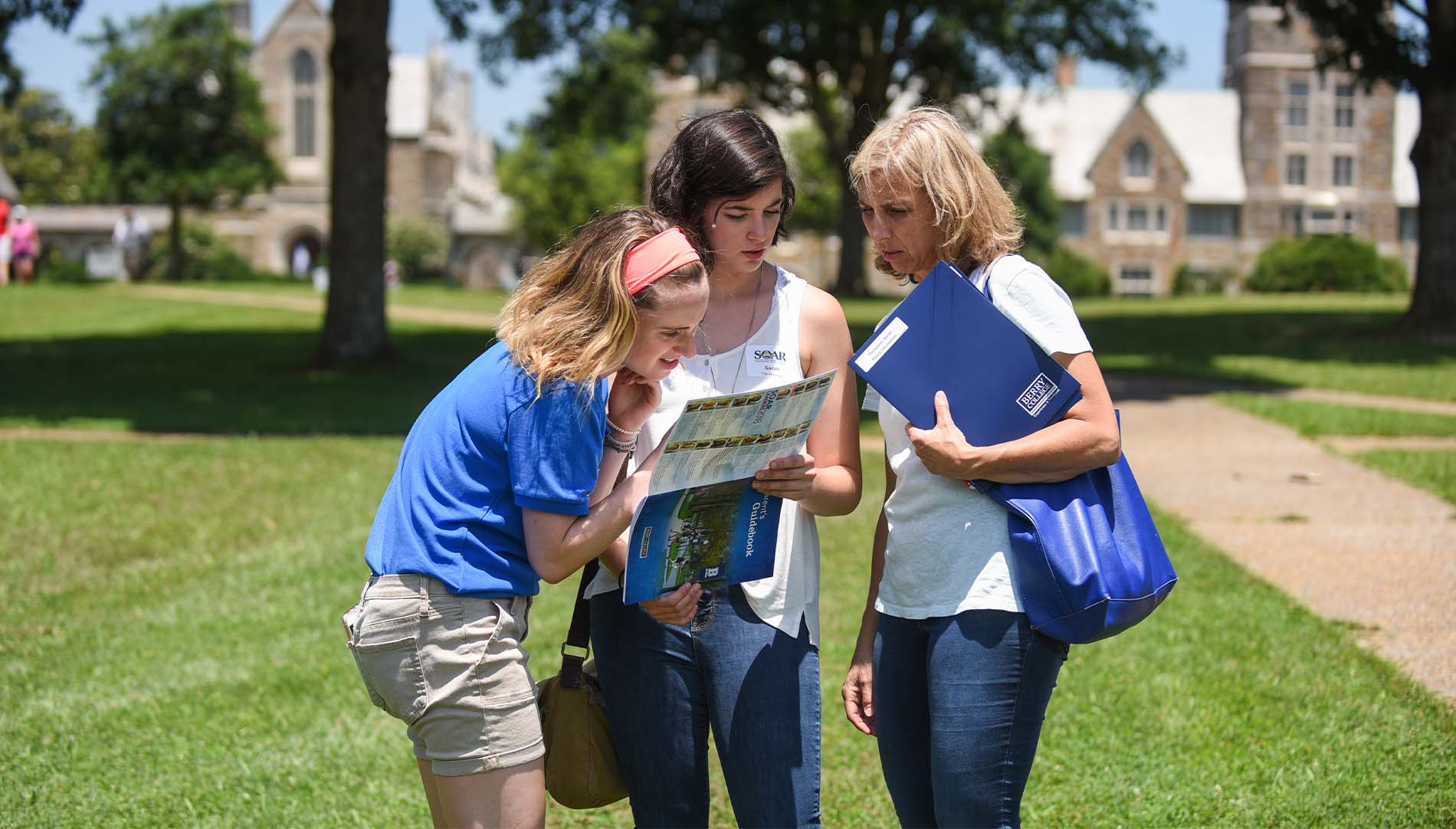Haikal Cooper ’23 just started an internship where he'll apply a strong combination of academics and hands-on training at OTR Engineered Solutions, part of an international enterprise specializing in off-the-road tire and wheel solutions. The Berry senior’s impressive skill set is grounded in three areas — computer languages, digital fabrication and electronics — all put to the test in the classroom and lab as well as on the job.
“Being able to study math and creative technologies has allowed me to combine my passion for prototyping, programming and problem-solving,” Haikal says.
He has taken full advantage of project-based learning in HackBerry Lab, Berry’s makerspace. The creative technologies mantra — “fail fast, fail forward”— encourages students to embrace their shortcomings while motivating them to push through their creative process.
“What I love about the motto is that it is applicable to everyone within the creative tech department,” Haikal explains. “It may be the students taking the Introduction to Prototyping Class or seniors figuring out the last step in finishing their capstone project or lab assistants fixing and maintaining the equipment in Hackberry Lab or professors figuring out how they can teach effectively through projects that have been affected by a chip shortage.”
Haikal has completed an array of projects in his time at Berry. For example, The PBS GO is an innovative pickleball simulator that allows anyone to play at any time, especially those without access to a court or during bad weather. It serves two competitors or a single participant playing against the computer. He’s also developed a time-tracking smart watch tailored for students and Flappy Pose Bird, an interactive video game based on computer vision (a field of AI that enables computers and systems to derive meaningful information from digital images, videos and other visual inputs).
The tools, technology and community unique to HackBerry Lab nurture students as they shape ideas, design, invent and build. “During times of exhaustion and almost defeat, there is always someone you can count on to bring encouragement, as well as a helping hand to make it through the final stretch of a project,” Haikal says.
He has reinforced transferable skills while mentoring fellow students through his campus job as a programming teaching assistant for Chris Whitmire, visiting clinical instructor of creative technology. “I have been able to supervise and lead teams of 5–20 people to serve a population of 20–200 people,” Haikal says. “In terms of communication, I have grown in being more cohesive and conveying my thoughts in a logical, well thought manner while giving my peers an opportunity to share their thoughts and raise their concerns.”
Other leadership roles include serving as one of the student scholarship directors for Berry’s Office of Diversity and Belonging as well as project manager for the chaplain’s office.
As for the future, Haikal is open to working in engineering in the private sector. However, his mentoring and teaching experiences may lead elsewhere: “I have truly loved being able to do that throughout the majority of my LifeWorks jobs, and it has made me consider teaching in higher education or possibly going into a career in educational leadership.”



